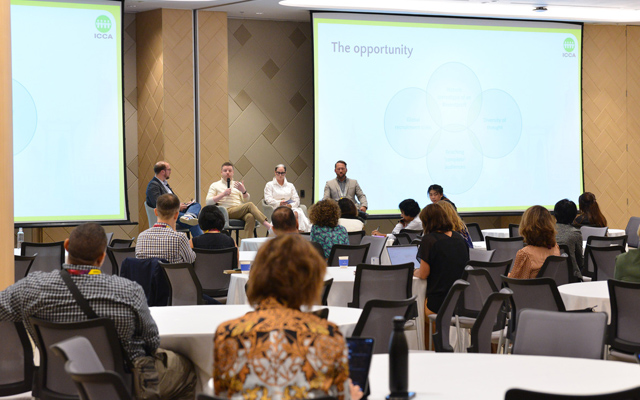The business events community should adopt a more comprehensive perspective on Diversity, Equity, and Inclusion (DEI), extending its focus to also encompass individuals with disabilities – whether physical, mental, sensory, or intellectual.
This imperative was emphasised during the session Shattering the Status Quo: Rethinking Accessibility for Real Inclusion during the 62nd ICCA Congress in Bangkok last week.

Rory Archibald, senior business events manager at VisitScotland, stressed the crucial integration of accessibility for individuals with disabilities into the DEI discourse within the business events domain. He highlighted the significance of education as a means to heighten sensitivity to the needs of such individuals.
Aileen Crawford, head of tourism and conventions at Glasgow Convention Bureau, underscored the importance of ensuring individuals with disabilities can navigate conferences freely.
Reflecting on an industry conference held at an old hotel, she described a session led by a person in a wheelchair, with 10 able-bodied delegates assisting in navigating the floors. This experience served as a powerful realisation for the able-bodied, showing the significant challenges faced by those with disabilities in conference navigation and how important it is for event organisers to plan more inclusively.
Crawford cited Wales as a destination actively embracing inclusivity, with its Well-being of Future Generations (Wales) Act 2015.
Wales adopted legislation to foster a comfortable and welcoming environment for delegates who may have previously felt uncomfortable attending large events.
Crawford opined: “I think this really speaks in our world in the live events field to sensory, and you are beginning to see more places incorporate quiet rooms where people can go and decompress.”
It also exemplifies a positive trend toward creating more inclusive and accommodating spaces within the events industry.
Simon Heartfield, director of sales at Hilton Birmingham Metropole, revealed the challenges the property faced with a workforce shortage post-lockdown. In response, the company sought to diversify its recruitment channels, collaborating with several charities to support individuals facing mental health challenges, including the Down Syndrome Society in the UK, and organisations aiding those who are marginalised.
Among the new hires was an individual with Down Syndrome, whose presence injected a fresh dynamism into the team. Her unique contributions have not only enriched internal dynamics, but also positively impacted interactions with both team members and clients.
This success story affirms the value of embracing diversity and the positive outcomes that can result from inclusive hiring practices.





















